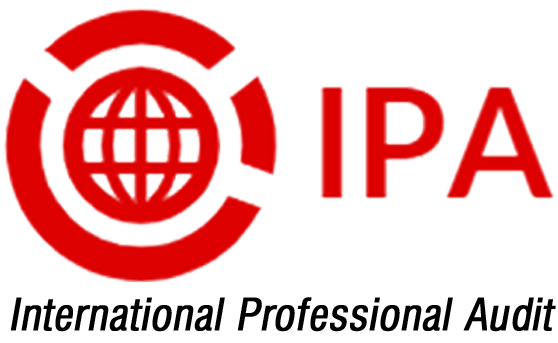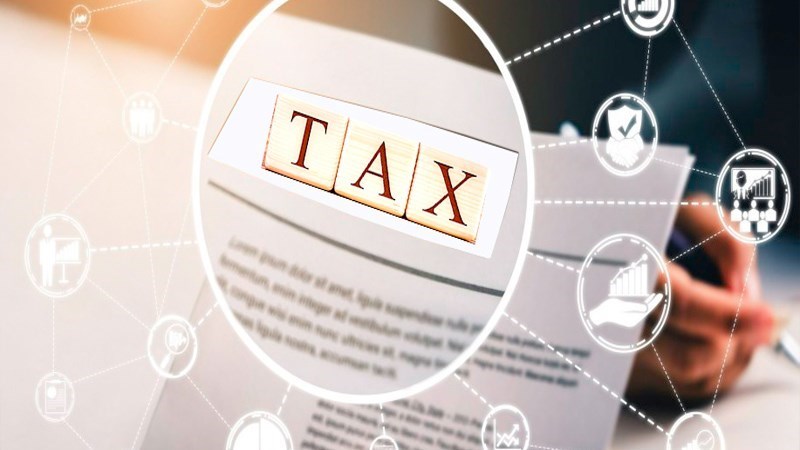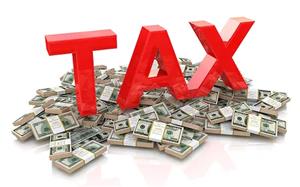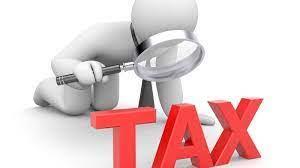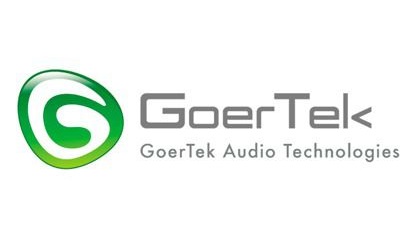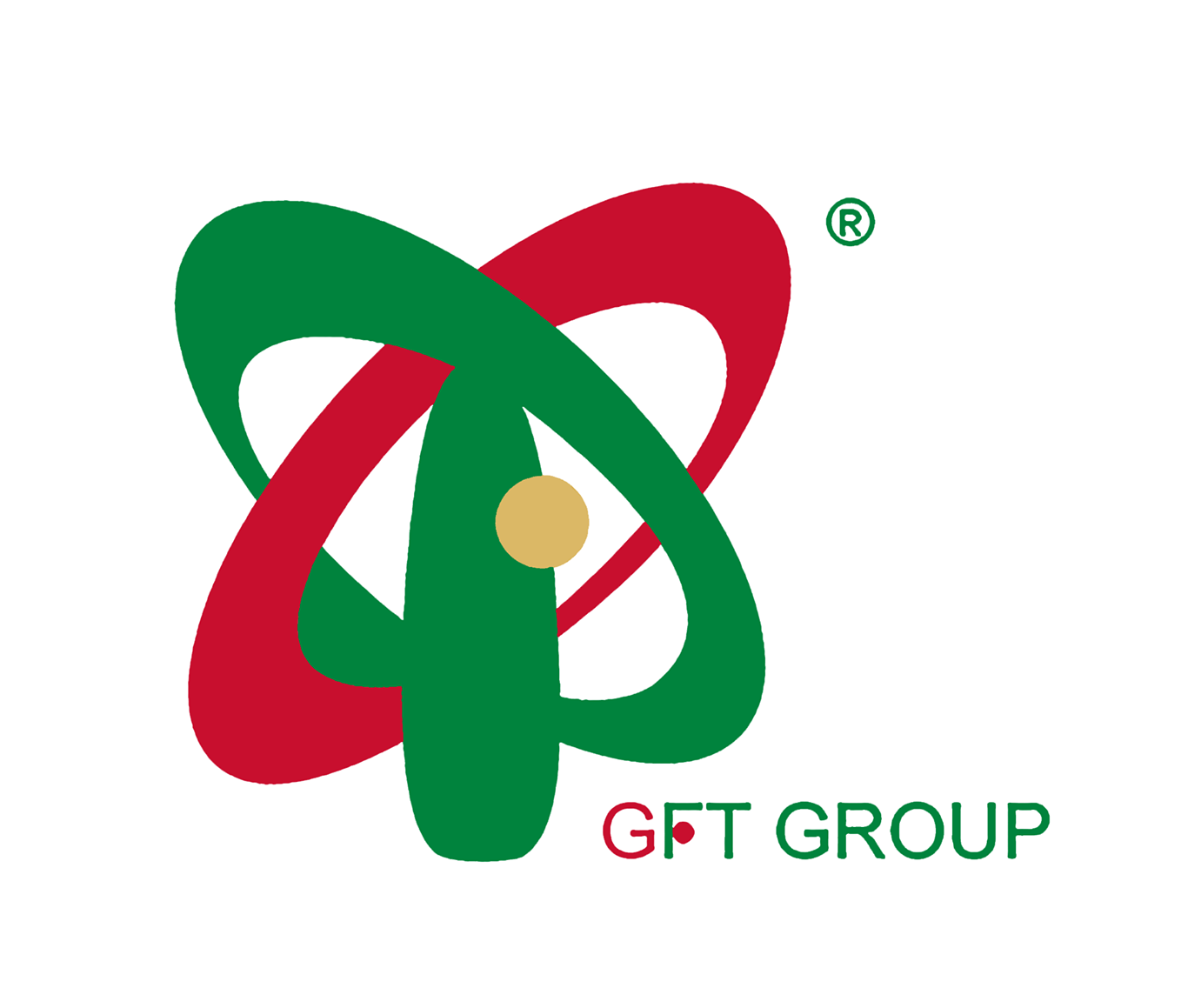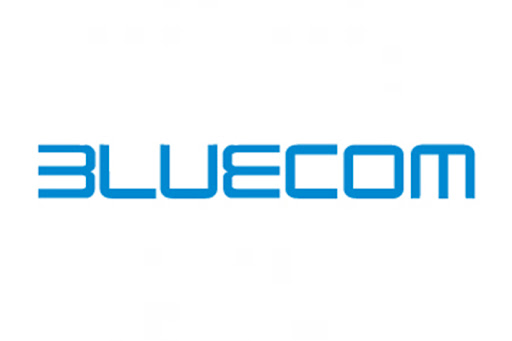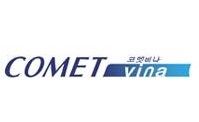Tax Policy
Tax inspection process
On July 14, 2023, the General Department of Taxation issued Decision No. 970/QD-TCT on the tax inspection process as follows:
Decision replaces the tax inspection process, including inspection at tax authority headquarters and inspection at taxpayer (enterprise) headquarters, applicable from July 14, 2023.
Accordingly, the selection of Comapany for inspection at tax authority headquarters is prioritized in order of high risk and combined with consideration of selecting Company that did not inspect or tax inspected for more than five years (point 1.2). Section II Procedure).
Similarly, the selection of the companies to include in the inspection plan at the business headquarters bases on the risk ranking results from high to low and combines with consideration of selecting companies that did not inspect for more than five years, tax inspection (point 1.2, Section III Procedure).
In the following cases, tax authorities will have the right to conduct surprise inspections at the enterprise's headquarters without having to make a plan (point 1.3, Section III of the Process):
– Check according to the complaint;
– Check under the direction of the Head of the tax authority or under the guidance of the Head of the superior tax authority;
– Check at the request of the business (divide, split, merge, consolidate, convert business type, dissolve, terminate operations, equitize, invalidate tax code, move location business leads to a change in tax management authority);
– Check before tax refund;
– Check as proposed after checking at the tax office headquarters;
– Other unexpected inspection cases.
Section IV This procedure contains regulations on electronic transaction methods between tax inspection teams and enterprises.
The decision takes effect from the date of signing.
This Decision replaces Decision No. 746/QD-TCT dated April 20, 2015; Decision No. 1215/QD-TCT dated September 3, 2020.
Regulations on invoices and tax policies for real estate transfer activities of businesses declaring VAT directly on revenue
On August 4, 2023, Hanoi Tax Department issued Official Dispatch No. 56948/CTHN-TTHT on regulations on invoices and tax policies for real estate transfer activities as follows:
If the company calculated VAT using the direct method on VAT, real estate transfer activities arise, they should use the sales invoice as prescribed in Clause 2, Article 8 of Decree No. 123/2020/ND-CP of The Government.
– Regarding VAT: The VAT amount payable according to the method of calculating directly on VAT is equal to the percentage multiplied by revenue. Revenue to calculate VAT is the total amount of actual sales of goods and services recorded on the sales invoice for goods and services subject to VAT as prescribed in Clause 2, Article 13 of Circular No. 219/2013/TT -BTC of the Ministry of Finance. The company declares and submits VAT declaration each time it arises according to form No. 04/GTGT issued with Circular No. 80/2021/TT-BTC of the Ministry of Finance.
– Regarding corporate income tax: Income from transfer of ownership or right to use housing is subject to corporate income tax according to the provisions of Clause 2, Article 16 of Circular No. 78/2014/TT-BTC of the Ministry of Finance. Corporate income tax for real estate transfer activities apply the provisions of Article 17 of Circular No. 78/2014/TT-BTC of the Ministry of Finance. The company declares and submits the Corporate Income Tax Declaration from real estate transfer according to form No. 02/TNDN issued with Circular No. 80/2021/TT-BTC.
Tax policy on other income due to not having to pay suppliers.
On June 27, 2023, the Tax Department of Bac Ninh Province issued Official Dispatch No. 2424/CTBNI-TTHT guiding on tax policy as follows: the company imports goods, it has declared an import declaration with the Department of Taxation. Customs and pay VAT on imported goods and import taxes according to regulations. The company has made debt payments; however, due to the struggle situation of the ompany, it requested an extension of the payment deadline and was agreed by the supplier. Now, the company has been unable to contact the supplier for payment, so it has issued a written decision to record not payed at the same time recording as other income.
- Regarding deductible expenses when determining income subject to personal income tax
The cost of raw materials corresponding to the value of unpaid goods to foreign suppliers used to produce finished products can be counted by the company as deductible expenses when determining income subject to corporate income tax if they meet the stipulated requirements in Article 4 of Circular No. 96/2015/TT-BTC dated June 22, 2015 of the Ministry of Finance.
- Regarding VAT deduction
In case the amount payable to suppliers for imported goods each time is worth 20 million VND or more but has not been paid, the company shall declare and adjust the amount of VAT that declareed and deducted according to regulations determined.
Corporate income tax
Service fees for declaring and calculating personal income tax on behalf of individuals and expenses for purchasing health care membership cards for individuals are deductible for corporate income tax purposes.
On July 18, 2023, the Hanoi Tax Department issued Official Dispatch No. 51950/CTHN-TTHT guiding deductible expenses when determining income subject to corporate income tax as follows: In case the company determines service expenses Declaring and calculating personal income tax on behalf of individuals, and spending on purchasing health care membership cards for individuals who are foreign workers working at the company are expenses that come from salaries and wages. This expense is reasonable when determining the company's corporate income taxable income if it satisfies the conditions specified in Clause 1, Article 4 of Circular No. 96/2015/TT-BTC, and stipulated in one of the following documents: Labor contracts; Collective labor agreement; The Company's financial regulations and are not subject to non-deductible expenses when determining income subject to corporate income tax as prescribed in Clause 2, Article 4 of Circular No. 96/2015/TT-BTC dated June 22, 2015 of the Govement.
Salary payments to e-wallets with sufficient legal documents include in deductible expenses.
On July 17, 2023, Hanoi Tax Department issued Official Dispatch No. 51356/CTHN-TTHT on valid documents when paying income to employees via e-wallet as follows: if the company plans to pay Paying income to employees through payment to the employee's e-wallet, expenses have enough legal documents according to the provisions of law, meeting the Clause 1, Article 4 of Circular No. 96/ 2015/TT-BTC and do not fall into the cases of salaries, wages and non-deductible amounts payable to employees specified in Clause 2, Article 4 of Circular No. 96/2015/TT-BTC are deductible expenses when determining income subject to corporate income tax.
Personal income tax
Compensation due to illegal termination of labour contracts belongs to personal income tax-free income
On June 23, 2023, the Tax Department of Thai Binh Province issued Official Dispatch No. 2727/CTTBI-NVDTPC guiding on tax policy for amounts payable to individuals due to illegal termination of labour contracts: Cases of individuals If the individual unilaterally terminates the labour contract illegally, the compensation that the individual receives according to the provisions of Article 42 of the 2012 Labor Code is income exempt from personal income tax.
Value-added tax
Issue VAT invoices for commercial discounts.
On August 2, 2023, the General Department of Taxation issued Official Dispatch No. 3292/TCT-CS guiding VAT invoices for commercial discounts as follows: In case business establishments apply commercial discounts for customers (if any), the VAT calculation price is the commercially discounted selling price for customers. In case the commercial discount base on the quantity and sales of goods or services, the discount amount of the sold goods is calculated and adjusted on the sales invoice of the goods or services of the last purchase or the next period. In case the discount amount establishs at the end of the sales discount program (period), an adjusted invoice will be issued with a list of invoice numbers to be adjusted, the amount, and the adjustment tax amount. Based on the adjustment invoice, the seller and the buyer declare adjustments to purchase and sale revenue, output and input taxes.
Using sales invoices and direct tax declaration for businesses in export processing zones when liquidating assets for sale domestically
On July 17, 2023, Hanoi Tax Department issued Official Letter No. 51359/CTHN-TTHT on the use of electronic invoices in export processing zones when liquidating assets as follows:
The Company is an export processing enterprise that liquidates fixed assets in the form of selling to the domestic market at the time of sale or liquidation to the domestic market. The policy on management of exported and imported goods will not apply except in cases where goods are subject to manage according to conditions, standards, and specialized inspections that have not carry out upon import; Goods management by license must be approved in writing by the import licensing agency according to the provisions of Article 26 of Decree 35/2022/ND-CP. The Company uses Sales Invoices as prescribed in Clause 2, Article 8 of Decree 123/2020/ND-CP dated October 19, 2020 of the Government. The company declares tax using the direct method on added value as prescribed in Clause 2, Article 13 of Circular No. 219/2013/TT-BTC. Regarding the submission of VAT declaration documents, the Company shall comply with the provisions of Article 44 of the Law on Tax Administration No. 38/2019/QH14, Article 8 and Article 9 of Decree 126/2020/ND-CP.
Handling when an invoice has been issued with goods eligible for VAT reduction but still at the old tax rate.
On July 19, 2023, Hanoi Tax Department issued Official Dispatch No. 52405/CTHN-TTHT handling invoices made with errors according to Decree 15/2022/ND-CP: In case the Company calculates VAT according to Deduction method, construction and installation activities are subject to a 10% VAT rate and are not on the list of goods and services specified in Appendix I, II, III issued with Decree No. 15/2022/ND-CP of the Government, the VAT rate of 8% will be applied from February 1, 2022 to December 31, 2022 according to the provisions of Clause 2, Article 1 and Clause 1, Article 3 of Decree No. 15/2022/ND-CP of the Government.
In case the Company incurs construction and installation activities that are applying the 10% VAT rate and are entitled to VAT reduction according to the provisions of Decree No. 15/2022/ND-CP but the Company has already issued invoices and has If you declare according to the tax rate or percentage to calculate VAT that has not been reduced according to this Decree, the seller and buyer must make a record or have a written agreement clearly stating the error, and at the same time the seller must make an invoice error correction invoice and deliver the correction invoice to the buyer. Based on the adjusted invoice, the seller declares output tax adjustments, the buyer declares input tax adjustments (if any) according to the provisions of Clause 5, Article 1 of Decree No. 15/2022/ND-CP, Clause 2, Article 19, Decree No. 123/2020/ND-CP.
VAT refund for investment projects
On July 31, 2023, Hanoi Tax Department issued Official Dispatch No. 54965/CTHN-TTHT guiding on VAT declaration for investment projects as follows:
In case the Investment Project Owner assigns a Branch in a provincial locality other than the locality where the Investment Project Owner's headquarters locate to directly manage one or more investment projects in multiple localities on behalf of the Investment Project Owner. The investment projects are eligible for value added tax refund the Branch must prepare a separate tax declaration for each investment project and submit it to the tax authority where the investment project locate as prescribed in Point d, Clause 2. Article 7 and Point a Clause 1 Article 11 Decree No. 126/2020/ND-CP.
In case the Branch performs VAT refund for investment projects, the tax refund request submitted to the tax authority must include the Decision on assignment of investment project management of the investment project owner, Organization and Regulations. Branch operations according to the provisions of Point a.6, Clause 2, Article 28 of Circular No. 80/2021/TT-BTC.
VAT policy for leasing factories and offices to export processing enterprises
On August 1, 2023, the Hanoi Tax Department issued Official Dispatch No. 55519/CTHN-TTHT guiding on VAT policies for activities of renting factories and offices to export processing enterprises as follows:
– For office rental activities, the 0% VAT rate does not apply as prescribed in Clause 2, Article 1 of Circular No. 130/2016/TT-BTC, but the 10% VAT rate applies as prescribed in Article 1. 11 Circular No. 219/2013/TT-BTC.
– For factory leasing activities, the VAT rate is 0% if the conditions specified in Point b, Clause 2, Article 9 of Circular No. 219/2013/TT-BTC are satisfied.
– Enterprises must declare VAT according to each tax rate prescribed for every activities. If the enterprise does not determine each tax rate, it must calculate and pay tax at the highest VAT rate of 10% as prescribed in Article 11 of Circular No. 219/2013/TT-BTC.
Tax policy for imported goods brought into bonded warehouses without import procedures into the domestic market
On July 7, 2023, Hai Duong Provincial Tax Department issued Official Dispatch No. 11633/CTHDU-TTHT guiding on tax policy as follows: In case the company imports goods from abroad and puts them directly into bonded warehouses ( without carrying out import procedures into the domestic market), then the company sells goods from a bonded warehouse to foreign customers and assigns receipt to a Vietnamese company located in an export processing zone, then the goods are determined to be purchased goods. Sales between non-tariff zones are not subject to VAT. When selling goods, the company issues an invoice, with full contents recorded on the invoice as prescribed in Article 10, Article 12, Decree 123/2020/ND-CP dated October 19, 2020 of the Government. At the target "Tax rate", write KCT (not subject to VAT) according to the instructions in Decision No. 1450/QD-TCT dated October 7, 2021 of the Director of the General Department of Taxation.
Tax policy for domestic enterprises leasing machinery and equipment from export processing enterprises
On July 12, 2023, Hai Duong Provincial Tax Department issued Official Dispatch No. 11680/CTHDU-TTHT guiding tax policies for export processing enterprises as follows:
In case the Company is an export processing enterprise and is permitted by a competent state agency to use machinery and equipment to perform activities leased to domestic enterprises, the Company must refund the preferential tax amount received exemptions and reductions for export processing activities according to the provisions of tax law. At the same time, the Company must open an accounting book to separately account revenue and costs related to domestic machinery and equipment rental activities are not generally accounted for in production activities. The company must fully carry out tax registration procedures with tax authorities and fulfill tax obligations for this leasing activity.
– In case the Company uses electronic value-added invoices according to Decree No. 123/2020/ND-CP for machinery and equipment rental activities, the Company declares value-added tax according to the deduction method. for the above activities.
– Machinery and equipment depreciation costs are requested to be implemented by the Company according to the provisions of Article 38 of Circular No. 200/2014/TT-BTC. If machinery and equipment have been registered for change of use with the Customs authority and are tracked and accounted for separately, the depreciation cost of this machinery will not be included in deductible expenses when determining taxable income. Enterprise import of export processing activities according to the provisions of Article 4 of Circular No. 96/2015/TT-BTC.



